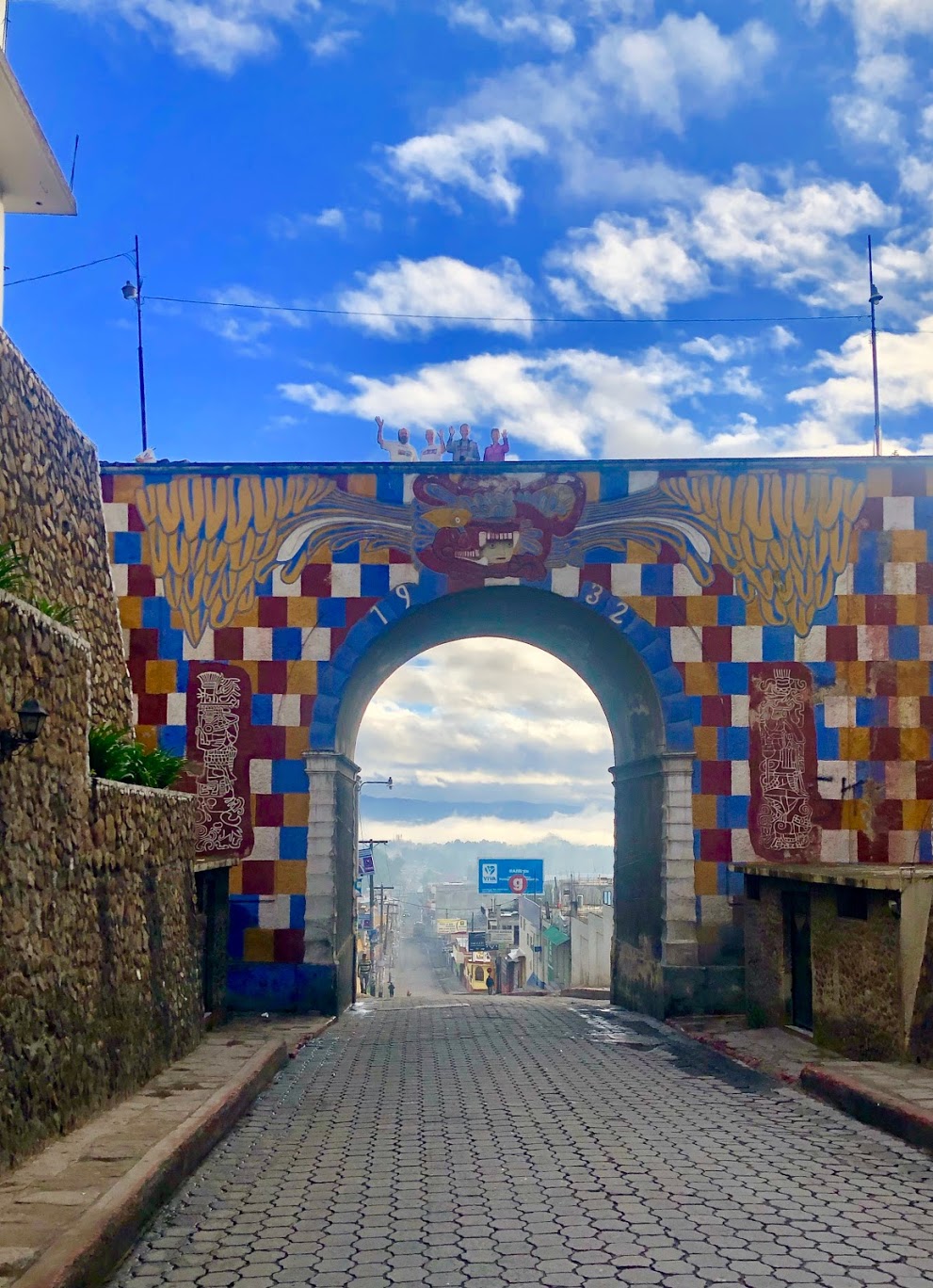Chichicastenango or “Chichi” as it is known, is found in the western highlands of Guatemala. Color and beauty is on display anywhere you look, from the cobblestone streets of the market to the seemingly endless mountains and valleys of the landscape. Chichi is known for its open-air market (the largest in Central America) and also for its celebration and practice of native Mayan culture and religion. The majority of the Chichi population is Mayan and they speak their native language, Kiche’, as well as Spanish as a second language.
Located in Central America, Guatemala is situated in between El Salvador and Mexico, Honduras, and Belize. It is touching the North Pacific Ocean and the Gulf of Honduras. Indigenous groups make up approximately 40% of the population, and extreme poverty is a rampant and pervasive issue. Guatemala’s children suffer one of the highest malnutrition rates in the world.
Chichicastenango is an indigenous Mayan town located in the highlands of northwest Guatemala. The 90 mile trip from Guatemala City will take approximately 3 hours due to the mountainous terrain as the windy roads climb to approximately 6400ft in Chichi. The Spanish Conquistadors changed the town’s name from it’s original Tzitzicaztenanco, or City of Nettles, to Chichicastenango. In the center of town is Santo Tomas Church which the Spanish Conquistadors built on top of a pre-Hispanic Mayan temple. Mayan priests still use the church for ceremonies burning candles and incense. Nearby is another Chichi historic site, Pascual Abaj, a stone resembling a face upon a mountain top overlooking Chichi where Maya Shaman also perform ceremonies petitioning the gods for blessings, weddings, and prayers for the sick which sometimes includes sacrificing a chicken. Thursdays and Sundays have made Chichi famous for it’s open air markets. Vendors can be seen selling anything from beans, lime stones for tortillas, clothing, hammocks, pottery, and even pigs and chickens. Chichicastenango is a town rich with culture as well as a land war torn and pock marked by struggle; much of which is not seen by the casual tourist. The local Mayans are used to being taken advantage of by foreigners such as the Conquistadors and, most recently, by their own government and guerrilla forces. A 30-year civil war which ended in 1996 was centered around Chichicastenango and the Highlands area. The effects of the war are still felt today as many Mayans were brutalized and murdered and during that time many Mayan villages were wiped off the map in a “scorched earth policy”; investigations continue even today. As a result many women have been left widowed. This is where the Manos De Jesus ministry feels led to serve via James 1:27.

(*These videos are intense and should be previewed prior to being viewed by kids)
-
- “Reparando” available on Amazon Video
- “Living on One Dollar a Day” available on Amazon Video
- “Finding Oscar” available on Amazon Video
- “Voice of a Mountain – Life After the 36 Year War in Guatemala” available on YouTube

